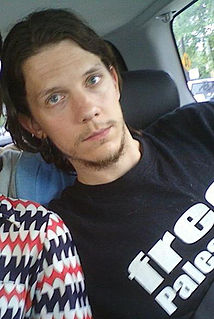A Quote by Frank Herbert
We are questioning more than the philosophy behind our dependence upon limited and limiting systems. We question the power structures that have grown up around such systems.
Related Quotes
There will be some fundamental assumptions which adherents of all the variant systems within the epoch unconsciously presuppose. Such assumptions appear so obvious that people do not know what they are assuming because no other way of putting things has ever occurred to them. With these assumptions a certain limited number of types of philosophic systems are possible, and this group of systems constitutes the philosophy of the epoch.
Empires are synonymous with centralized if occasionally schismatized hierarchical power structures in which influence is restricted to an economically privileged class retaining its advantages through usually a judicious use of oppression and skilled manipulation of both the society's information dissemination systems and its lesser as a rule nominally independent power systems. In short, it's all about dominance.
The tragic reality is that very few sustainable systems are designed or applied by those who hold power, and the reason for this is obvious and simple: to let people arrange their own food, energy and shelter is to lose economic and political control over them. We should cease to look to power structures, hierarchical systems, or governments to help us, and devise ways to help ourselves.
The various systems of doctrine that have held dominion over man have been demonstrated to be true beyond all question by rationalists of such power-to name only a few-as Aquinas and Calvin and Hegel and Marx. Guided by these master hands the intellect has shown itself more deadly than cholera or bubonic plague and far more cruel. The incompatibility with one another of all the great systems of doctrine might surely be have expected to provoke some curiosity about their nature.






































